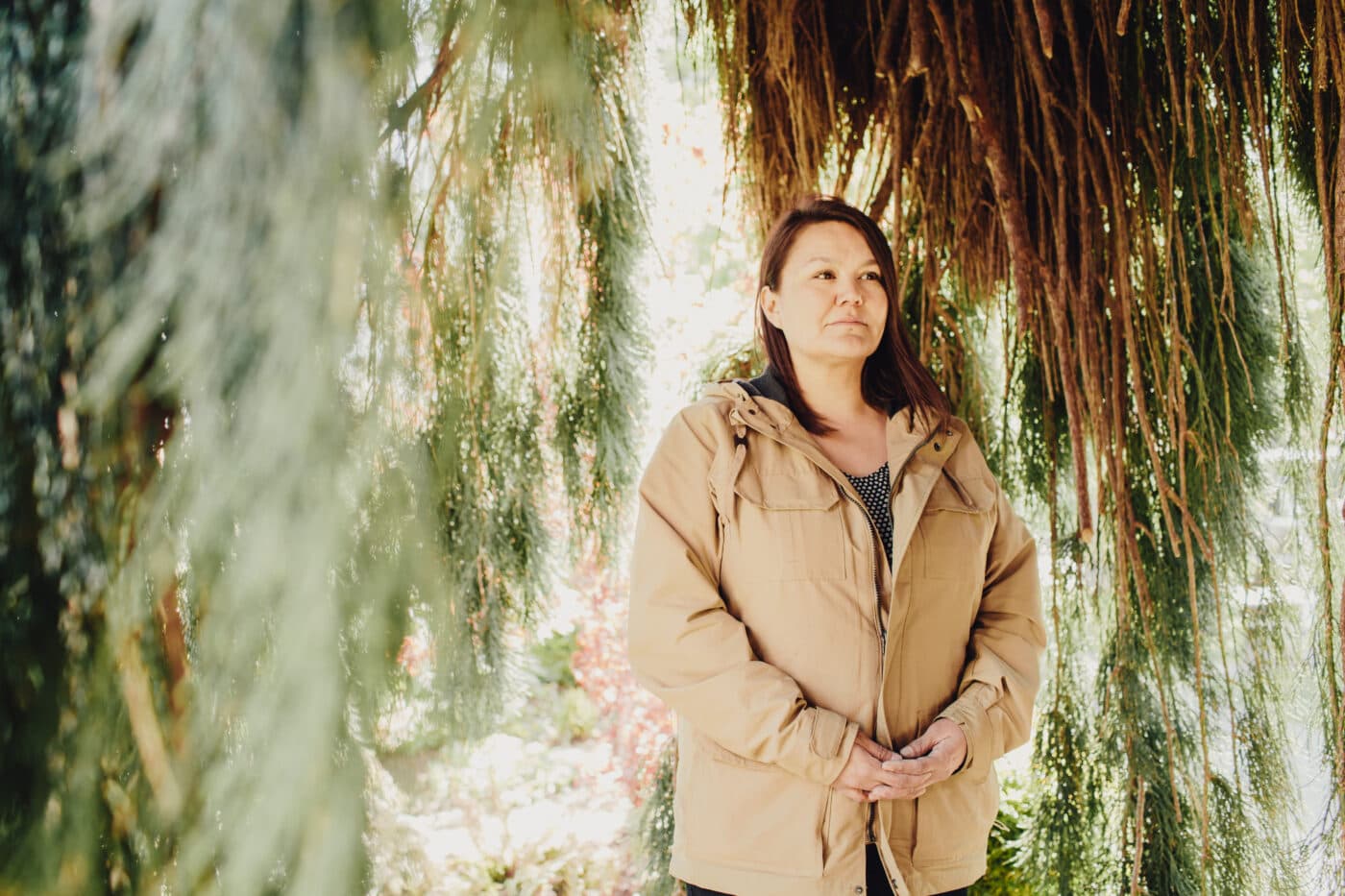Editor’s note: You don’t have to be indigenous to love the land you live on but it certainly gives moral authority. And in the fight against settler colonialism gives a much greater legitimate claim to virtue. They don’t even follow their own rules. Broken Treaties.
Indigenous Peoples bear the brunt of environmental inaction — and sometimes action. The Narwhal speaks to three women on what they hope to address at the UN climate change summit in Glasgow
Nuskmata wants to combat myths about mining in Canada.
This is one of her goals at the United Nations climate summit in Glasgow.
Nuskmata, mining spokesperson for Nuxalk Nation, spoke to The Narwhal from her home in British Columbia prior to leaving for the summit, also known as the 26th annual meeting of the Conference of Parties (COP26) to the United Nations Framework Convention on Climate Change.
She said she wants to centre solutions around Indigenous governance and emphasize how Indigenous Peoples are bearing the burden of climate policies, even well-intentioned ones like switching to electrification and renewable energy — that still requires mining precious metals, she said.
“You can’t be sacrificing Indigenous Peoples and clean water in order to get solar panels,” she said.
“It’s not just swapping out oil and gas. It’s about changing the system so that it’s sustainable for everybody.”
Nuskmata is one of many Indigenous delegates at COP26 determined to pursue Indigenous solutions, along with debunking myths and adding context to Canada’s global commitments.
She said she also hopes to deliver a message that mining “is not a green solution” to the climate crisis.
At COP26, the more than 100 countries in attendance will update their 2015 Paris Agreement commitments to reduce greenhouse gas emissions, intended to meet the urgent need to limit global warming to 1.5 C. This will require profound changes, as the Intergovernmental Panel on Climate Change released a sobering report in August which found Earth could exceed the 1.5 C warming limit by the early 2030s if we don’t curb emissions. To stay below 2 C warming, countries have to meet net-zero emissions around 2050, the report found.
Already in Scotland, nearly all countries have signed a deal committing to end deforestation by 2030, including Canada — though logging here is seen as renewable and therefore not affected by the deal. Delegates have pledged $1.7 billion in funding to Indigenous Peoples, recognizing the critical role they play in forest conservation.
On Monday Prime Minister Justin Trudeau pledged to cap and then cut emissions from Canada’s oil and gas sector, repeating one of his 2021 campaign promises. But according to a new report from Environmental Defence Canada and Oil Change International, oil and gas producers only have vague commitments that rely on carbon-capture technology.
Some critics say COP26 is excluding Indigenous leaders from key parts of the international discussions. Regional Chief of the British Columbia Assembly of First Nations Terry Teegee said in a public statement “there is a noticeable failure to include First Nations while negotiating the collective future of our planet internationally and locally.”
Read the full article at The Narwhal.
Banner image: Nuskmata is one of three Indigenous women The Narwhal spoke to about the message they’re bringing to COP26 in Glasgow.

